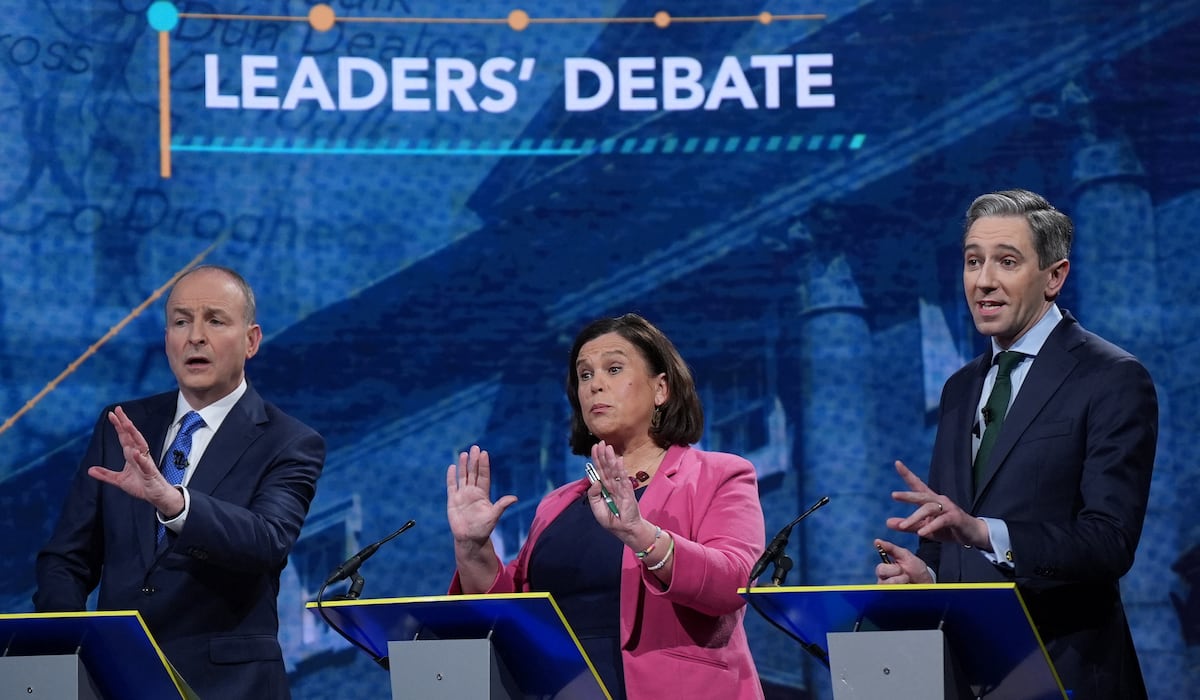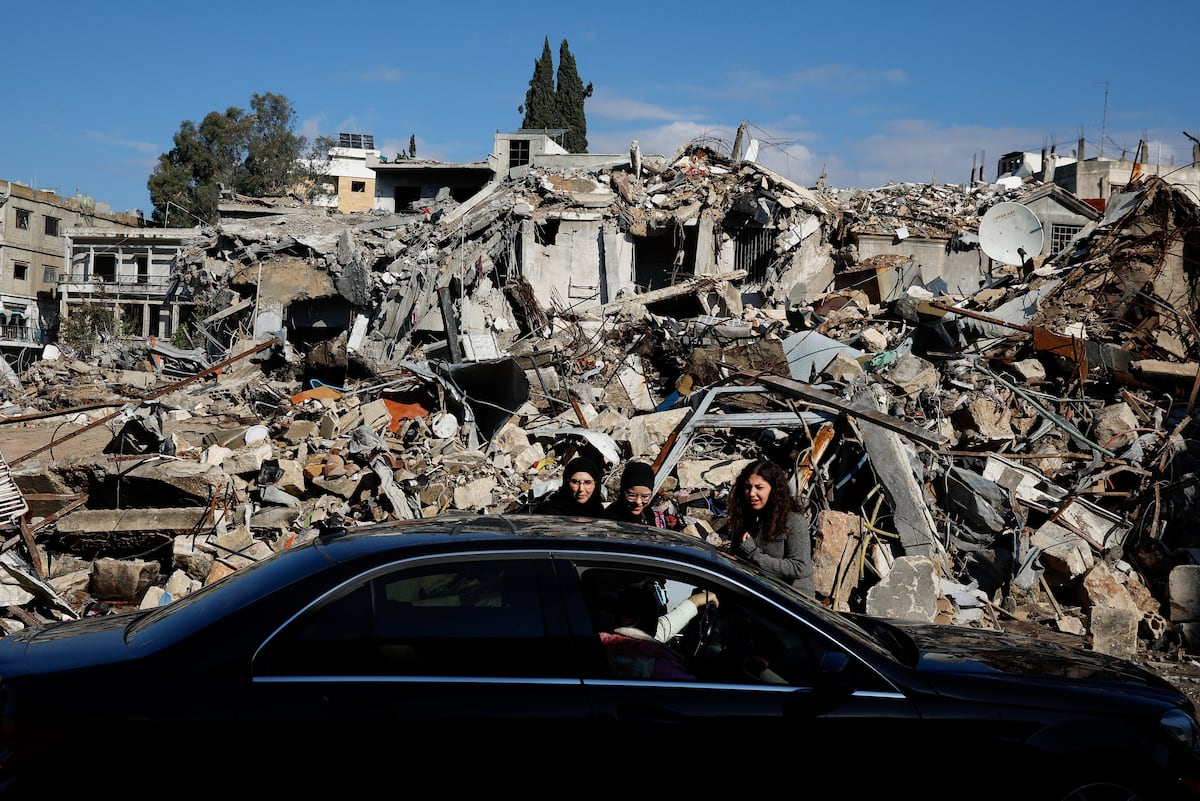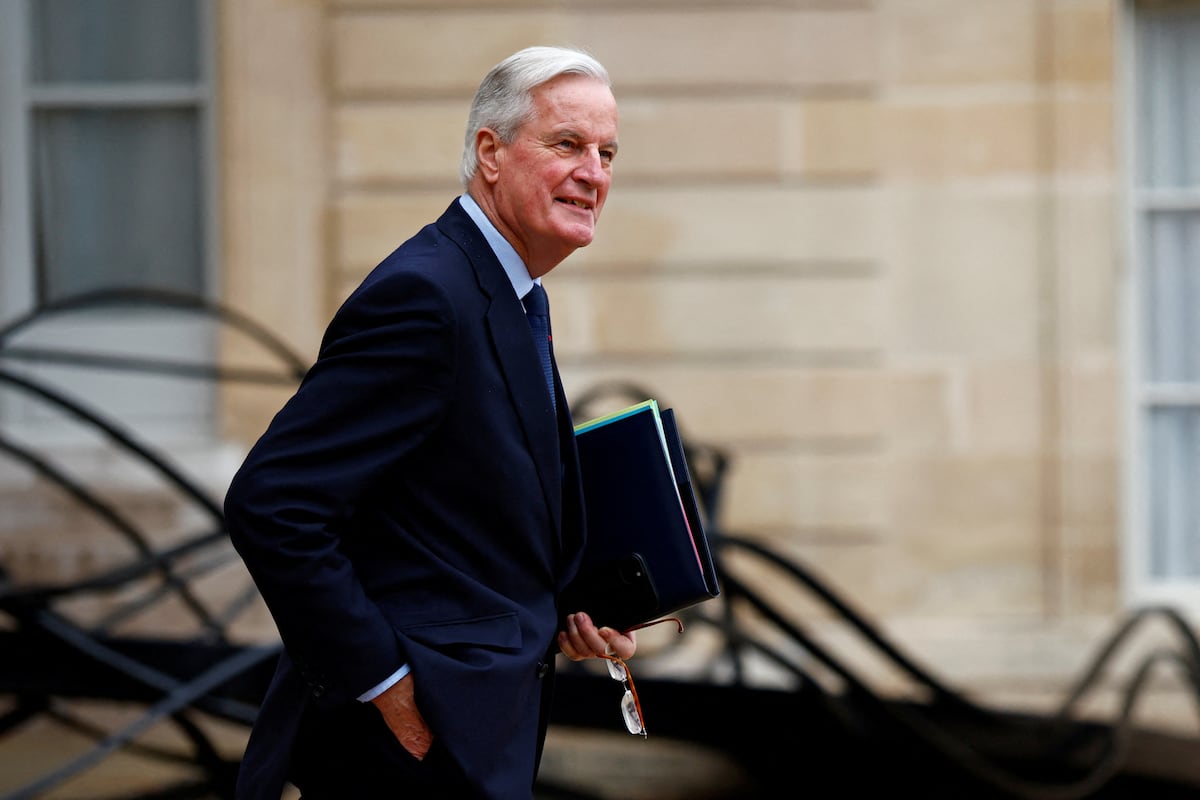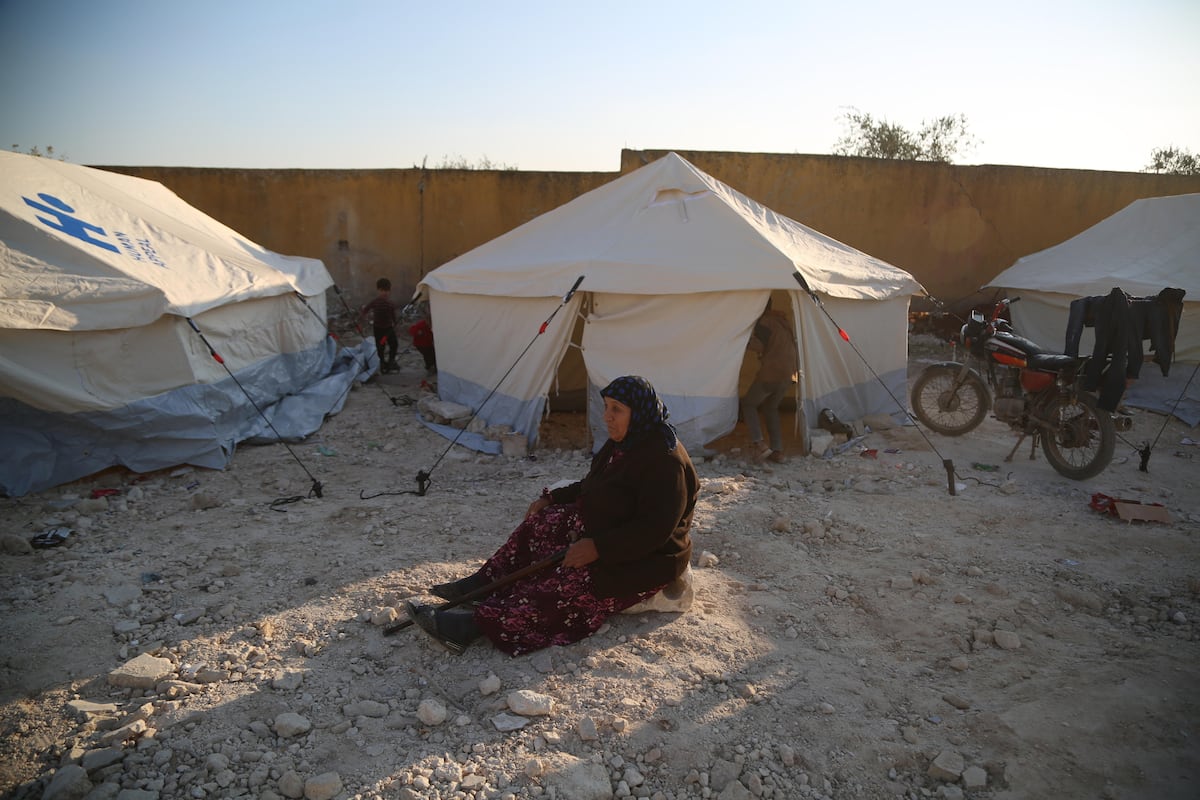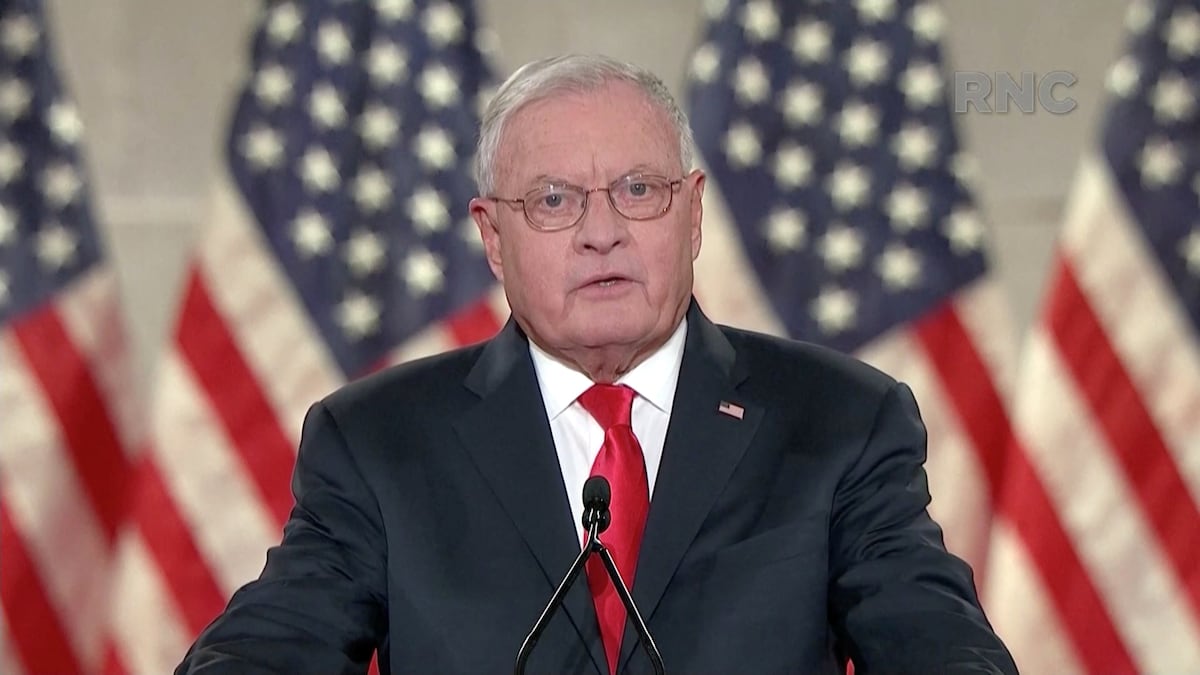The most famous Dubliner in history, the writer James Joyce, was convinced that if with his literature he could capture the heart of this city, he would at the same time manage to capture that of all the cities in the world, because the universal resides in the particular. The Dublin Central electoral constituency, north of the River Liffey, can also serve as a microcosm to explain what is at stake for the country in the general elections that Ireland holds this Friday. The Government calls them on the back of a budget surplus unprecedented in any other member of the EU, but with a housing crisis, a high cost of living and an outbreak of immigration that have shaken the political climate of the island.
The two main parties that have formed a coalition these four years, Fine Gael and Fianna Fail, compete with each other but trust that they can continue governing together. Sinn Féin, the historic political arm of the IRA that surprised in 2020 by winning the most votes, is fighting to overcome its internal crisis and become strong again in these elections.
“What do we mean when we talk about the housing crisis?” asks Siobhán, the woman who has been running the real estate sales office The Property Shop, on Manor Street, for a decade. “When I put a house up for sale in this area, for which I can ask between 300,000 and 600,000 euros, they take it off my hands in less than two weeks,” he explains.
It refers to the Stoneybatter neighborhood, which is part of Central Dublin and for years has been a fashionable area coveted by shoppers, many of them well-paid workers at technology giants such as Apple, Google or Meta, which have made the Irish capital their headquarters in Europe and have filled the State coffers, despite paying only a meager 12.5% of corporate tax.
A ten-minute walk away is another suburb called Phibsboro, where urban deterioration is more evident and homeless people who have taken over a corner of the street can be seen at every step.
There it is easier to spot election posters with the name of Gerry Hutch, who is running as an independent candidate in a constituency that sends up to four deputies to Parliament. “We need change and I’m your man,” says Hutch’s campaign slogan.
Suspected of being at the forefront of two of the most famous robberies in Irish history; nicknamed The Monk (The Monks) for his austere life, and leader of a mafia gang, the so-called Hutch Gang; and extradited in 2021 by Spanish justice – he lived in Lanzarote and Fuengirola – to face in a Dublin court the accusation of murder of his mafia rival, David Byrne, of which he was acquitted; and historic neighbor of the neighborhood.
“He’s a real criminal, yes,” Siobhán laughs, “but that’s a Phibsboro thing.”
“No one cares about the Irish, only the foreigners who keep coming to the country,” says Rita Flynn, a 79-year-old pensioner, as she pushes her shopping cart. “I wouldn’t mind voting for The Monk, to see if he can do something,” he suggests.
The ghost of xenophobia
Fourteen candidates, from different parties, but also independents, are competing for the four seats in Dublin Central. And four of them are the ones who turn this constituency into a small laboratory for Irish elections. Hutch and the far-right lawyer Malachy Steenson agitate a working-class and Republican base that historically voted for Sinn Féin and today is unhappy with this party’s tolerance for irregular immigration.
The president of that party, Mary Lou McDonald, also runs in that district. The Dublin lawyer, who inherited the leadership of the party from the historic Gerry Adams, managed to change the image of Sinn Féin to turn it into a left-wing and protest movement against the establishmentattractive to an urban and wealthy electorate.
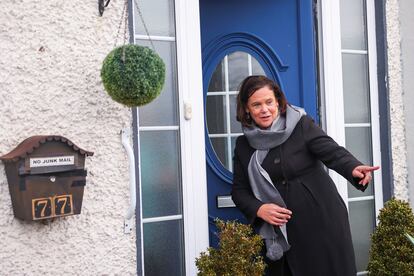
In 2020, it was the party with the most votes, and only the coalition of the two historical rivals, Fine Gael and Fianna Fail – one more liberal, the other more conservative, but two branches of the same nationalist tree of Irish independence – stopped its progress.
Along with a series of internal scandals, the emergence of immigration has unsettled McDonald and the rest of the party leadership. In just two years, 120,000 Ukrainians and almost 30,000 asylum seekers have arrived, most of them from the Middle East, to a country of 5.2 million inhabitants that until recently was more accustomed to producing emigrants than receiving them.
In November last year, violent and xenophobic riots broke out in the city center like never before. The Government has on several occasions forcibly evicted refugee camps with hundreds of tents on the streets of Dublin.
“Sinn Féin is a nationalist party, but very left-wing, with a clearly socialist leadership. Open to welcoming those in need. But many of his voters are not so open. They are, yes, but with vulnerable Irish people, not foreigners. And that has caused clear internal tension,” Gail McElroy, professor of Political Science at Trinity College in Dublin, explains to Morning Express.
Misleading surplus
Finally, to complete the outline of Dublin Central, we must mention the Fine Gael candidate, Paschal Donohoe, former Minister of Public Expenditure and National Reform and President of the Eurogroup.
Faithful ally of the Prime Minister, Simon Harris, both have launched a shower of gifts to the taxpayer and tax reductions favored by the surplus, which has also been helped by the more than 14,000 million extra euros that European justice has forced on Apple to pay to the Irish Government.
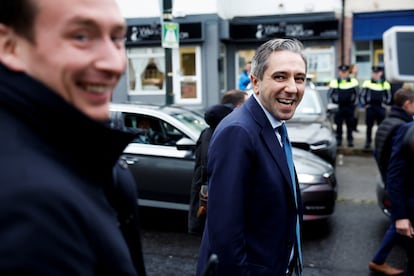
The country, however, has seen how the price of basic goods has skyrocketed, and maintains especially high levels of inequality.
The supposed advantage in the polls that led Harris to advance the elections has been diluted. The three main parties go to the polls with a technical tie of 20% each. “The coalition of Fine Gael and Fianna Fail remains the favourite, but not with majority support. There are ten parties, not counting the independents. It is the most likely outcome, but anything is possible,” says Theresa Reidy, professor in the Department of Politics at University College Cork.
The express refusal by the two coalition parties to join forces with Sinn Féin anticipates, in the event that election day ends up being generous again with this formation, complicated days until a new Government is formed.

